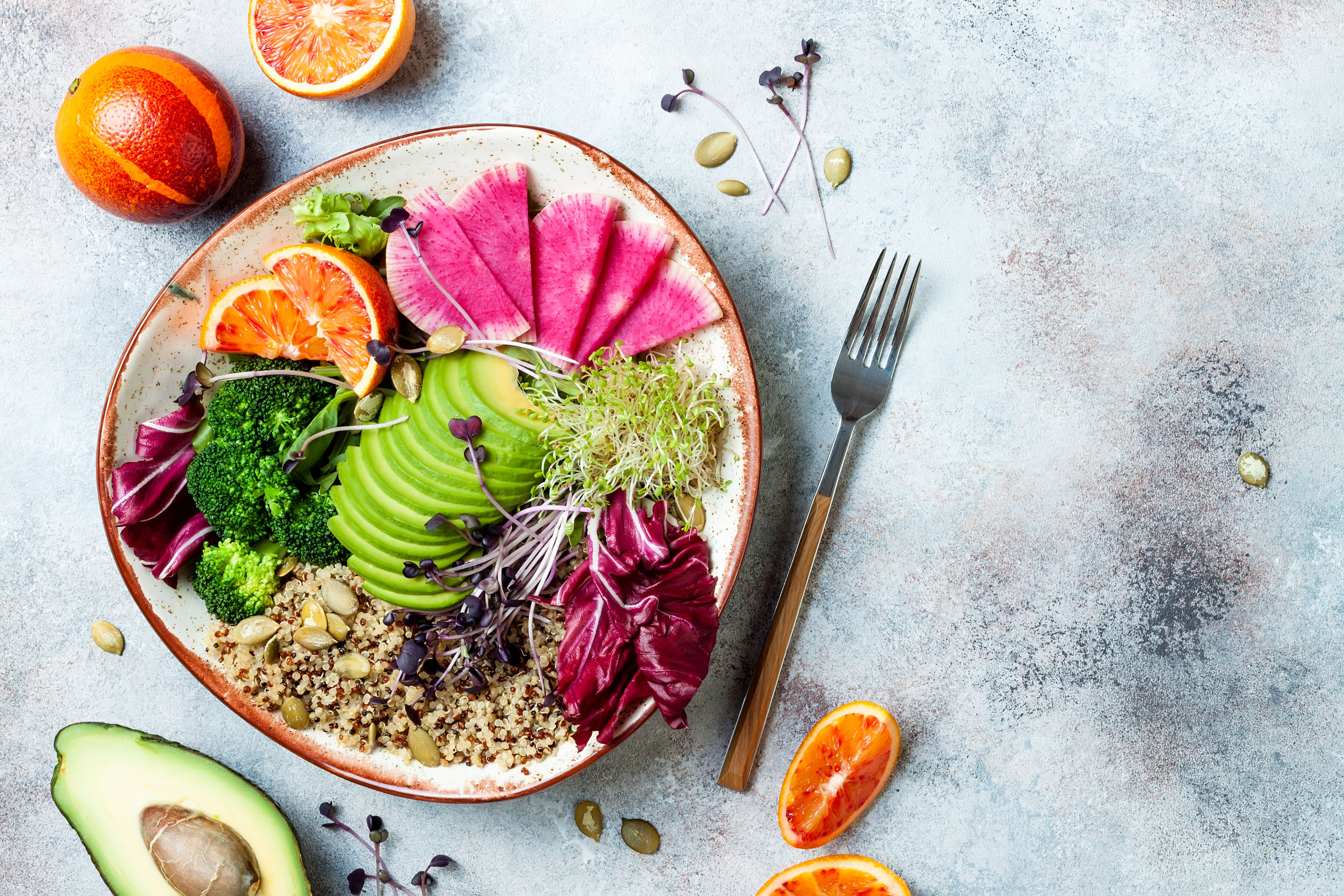Gluten-Free products may have had the spotlight in the 2010s, but it’s the plant-based products that are taking the stage as we enter 2020. The conversation around climate change is raising awareness while the old – myths of lower physical performance based on levels of protein are being diminished. You’ve seen the ads, featuring major companies competing over who has the best plant-based burger. There are also waves of professional and Olympic athletes who are singing the praises of plant-based eating through social media and on the news. So, what is all the hype about? Is it for you?
The term “plant-based” refers to a diet that removes all animal products from the equation including animal bi-products (think: no eggs, no dairy, no meat or just choosing plant-based versions of your beloved favorites). Although sometimes these terms are used synonymously, “Vegans” take this term a step farther by adding their plant-based diet to broader lifestyle choices (think: no leather, down fillers or no animal testing, etc).
Why go plant-based?
- Eating a plant-based diet can prevent and sometimes manage chronic disease. Why wait until the damage is already done? There is a wide array of research demonstrating that a plant-based diet is able to help prevent and manage diabetes, efficiently lowering cholesterol, and can reduce your risk of heart disease, Alzheimer’s, and certain types of cancer.
Did you know? Processed meat is recognized by the World Health Organization as a level 1 carcinogen – Yikes.
- Eating plant-based conserves water and land. A meat-free diet can cut your water footprint IN. HALF. The United States Geological Survey (USGS) estimates that it takes about 460 gallons of water to produce one 1/4 lb hamburger. The bigger the cut of meat, the bigger the impact on water resources. It’s not hard to fathom, the water (and land) it takes to hydrate the animals and to grow all of their food, and that water is an essential component in facilities maintenance, sanitation, slaughter, etc. Many lands that would otherwise support forests and diverse ecosystems continue to be cleared to enable the grazing of livestock, both in the US and abroad. Just this year we watched the Amazon burning on the news as it was intentionally cleared for cattle.
Did you know? You save more water by not eating one pound of meat than you do by not showering for six months!?
- Eating plant-based is good for the planet. Animal agriculture is a leading cause of greenhouse gas emissions, water pollution, ocean dead zones, deforestation/habitat loss, and species extinction. When considering the health of our environment and the future of our planet, the easiest and most impactful way you can make a difference in your day to day is to eat less meat or go plant-based.
Did you know? Livestock causes more pollution than the worlds entire transport system. Re-read that.
Does this mean you have to give up the butter, cheese, chicken and hamburgers that you enjoy?
NO – There are all kinds of options, alternatives, and ways to integrate plant-based eating into your own lifestyle routine, even if it is just one meal a week. Grocery stores commonly offer a variety of plant-based milks, butters, cheeses, burgers, nuggets, sausages… you name it. Not to mention the endless variety of whole foods available if plant-based alternatives are not your thing.
So where to start?
- Start slow. Try swapping out your milk for a different plant-based option (there are so many!), add more beans or fruits into your shopping cart this week, or give Meatless Mondays a try. Pick a few small, manageable things and ease into it.
- Seek the guidance of a good cookbook. My favorite cookbooks include:
- Sweet Potato Soul, Jenne Claiborne
- Forks Over Knives, Lee Fulkerson
- The Chicago Diner Cookbook, Jo A. Kaucher
- Watch a documentary for in-depth exploration. All available on Netflix:
- Game Changers, focuses on plant-based physical performance, including power lifters, body builders, Olympians and professional athletes (several of whom are world-record holders).
- What the Health, examines the link between animal products and chronic diseases.
Regardless of the type of whole-food or plant-based diet you choose, adopting this way of eating is sure to boost your health. The power is on your plate. The time to start making the change is now. You’ll be glad you did.
TC112432(0220)3

